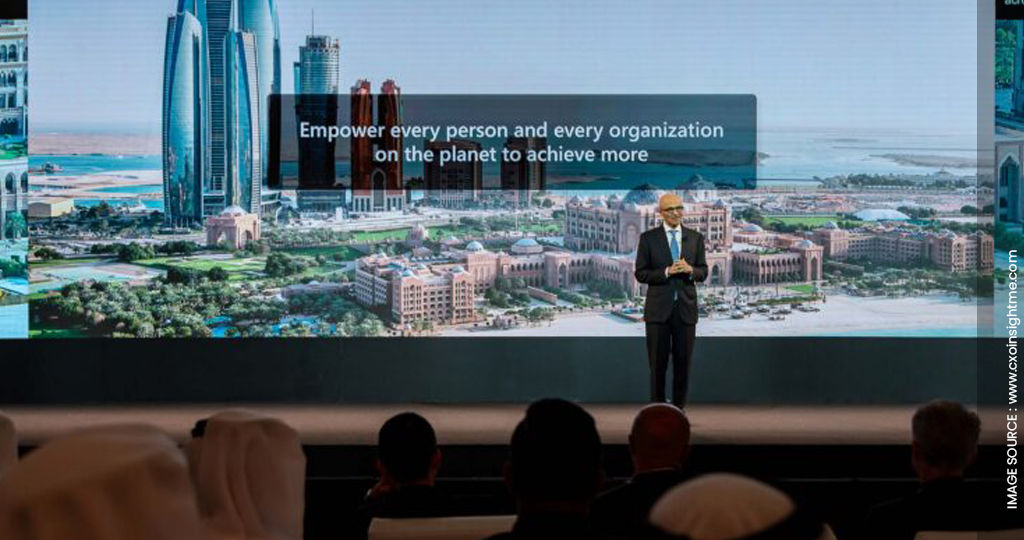In the highly competitive Middle East market, where consumers are bombarded with choices, creating exceptional customer experiences is important for brands. With digital transformation rapidly reshaping consumer behaviors and expectations, brands must prioritize delivering seamless, personalized, and memorable experiences to retain customers and stay ahead of the competition. In this article, we get into the significance of customer experiences in the Middle East and explore strategies for brands to excel in this crucial aspect.
Key Takeaways
Customizing experiences to reflect cultural nuances and preferences is crucial for Middle Eastern consumers.
Brands need to be present across online platforms, social media, mobile apps, and physical stores for seamless engagement.
Respect for local customs and traditions is essential for developing trust and long-term relationships.
Swift, polite, and efficient customer service is non-negotiable for success in the Middle East.
Brands must continuously adapt to meet evolving consumer needs and market trends for sustained growth.
Understanding the Importance of Customer Experiences
In the Middle East, where hospitality and personal relationships are deeply ingrained in the culture, customer experiences hold immense significance. A positive experience not only fosters customer loyalty but also generates positive word-of-mouth, essential for brand reputation and growth. Conversely, a single negative encounter can lead to the loss of a customer and damage the brand's image, given the tight-knit communities and extensive social networks prevalent in the region.
Moreover, the proliferation of social media and online reviews amplifies the impact of customer experiences. A dissatisfied customer can swiftly share their grievances with a vast audience, influencing potential customers' perceptions and decisions. Therefore, brands must prioritize every touchpoint along the customer journey to ensure consistency, excellence, and delight.
Learn more: How Dubai advances innovation to become the Metaverse Champion of the world
Key Elements to Create Exceptional Customer Experiences
1. Personalization
In the Middle East, consumers place significant value on personalized interactions that resonate with their cultural nuances, preferences, and values. By harnessing the capabilities of data analytics and artificial intelligence, brands can strategically tailor their offerings and communications to suit the individual needs of each customer. This targeted approach goes beyond mere customization, it fosters a profound sense of belonging and appreciation among consumers, reinforcing the brand-consumer relationship.
Through personalized experiences, brands can demonstrate an understanding of their customers' identities and aspirations, strengthening emotional connections and fostering long-term loyalty. In a market as diverse and dynamic as the Middle East, this emphasis on personalization not only drives customer satisfaction but also sets brands apart from competitors. By consistently delivering tailored experiences that resonate with their audience, brands can establish themselves as trusted partners in consumers' lives, ensuring continued success and relevance.
2. Omni-channel Presence
Characterized by diverse demographics and varying levels of digital adoption, brands face the imperative of maintaining a unified presence across numerous channels. This approach spans online platforms, social media, mobile apps, and brick-and-mortar stores. Seamless integration across these channels is pivotal, facilitating effortless engagement for customers as they transition between offline and online environments.
Such integration not only boosts convenience and accessibility but also ensures consistency in brand messaging and customer experience. Whether a customer interacts with the brand through a website, a social media platform, or a physical store, they should encounter a cohesive and harmonized experience that aligns with the brand's identity and values.
By navigating this multi-channel market and prioritizing seamless integration, brands can effectively reach diverse audiences, enhance engagement, and create stronger connections with customers across the Middle East.
3. Transparency and Trustworthiness
Consumers in the Middle East value transparency in business practices and expect honesty from the companies they engage with. It's essential for brands to openly communicate their policies, pricing, and product details. Consistency between marketing promises and actual delivery is equally crucial, as it bolsters credibility and reliability.
Making transparency a priority can help businesses establish trust among customers, creating stronger connections and increased loyalty. This commitment to openness also demonstrates integrity and accountability. Transparent communication builds a foundation of trust that encourages long-term relationships and advocacy among consumers in the dynamic Middle East market.
4. Continuous Improvement and Innovation
In the Middle East market, brands face the necessity of continuous improvement and innovation to stay relevant and competitive in the consumer market. This involves actively seeking feedback from customers to understand their needs, closely monitoring market trends, and allocating resources to research and development efforts.
By remaining agile and adaptable, brands can anticipate shifts in consumer preferences and technological advancements, allowing them to innovate and deliver solutions that exceed customer expectations.
Adopting a culture of continuous improvement enables brands to solidify their position in the market and maintain relevance. Whether through product enhancements, service innovations, or process optimizations, brands that prioritize innovation can differentiate themselves and capture market share.
5. Community Engagement and Social Responsibility
Community values and social responsibility hold huge significance in the Middle East, where brands that actively engage with local communities and support social causes are highly esteemed by consumers. Whether through sponsoring local events, participating in charitable activities, or adopting sustainable business practices, brands demonstrate their commitment to making a positive impact.
Aligning with these values and contributing meaningfully to society can enhance the reputations of businesses and forge deeper connections with customers. This dedication to social responsibility not only strengthens brand loyalty but also reflects a genuine concern for the well-being of the communities they serve, fostering a mutually beneficial relationship between brands and consumers.
6. Flexibility and Adaptability
Consumer preferences, economic conditions, and regulations vary significantly across different countries and regions within the Middle East. Brands that exhibit flexibility in their strategies, product offerings, and operations are better equipped to overcome these complexities. Whether it's modifying marketing campaigns to resonate with local cultural nuances, customizing products to meet specific market demands, or adjusting distribution channels to overcome logistical challenges, adaptable brands can maintain relevance and get a lead in the competition.
Swiftly responding to changing circumstances and embracing innovation effectively addresses consumer needs and market dynamics. Flexibility enables brands to stay agile and resilient in the face of uncertainty, positioning businesses for sustained success.
7. Emphasis on Localized Content and Language
In a region as culturally diverse as the Middle East, language and cultural nuances play an important role in shaping consumer engagement. Brands that prioritize localized content, including language-specific marketing materials, product descriptions, and customer support, demonstrate a commitment to understanding and connecting with their audience on a deeper level.
By speaking the language of their customers, both figuratively and literally, brands can break down communication barriers and create stronger connections.
8. Cultural Sensitivity
In the Middle East, cultural nuances have a profound influence on customer perceptions and behaviors, making it imperative for brands to exhibit cultural sensitivity and adaptability. This entails tailoring products, services, and marketing campaigns to resonate authentically with the diverse audiences across the region.
Demonstrating respect for local customs, traditions, and religious sensitivities is paramount in cultivating trust and nurturing enduring relationships. Brands that acknowledge and embrace cultural diversity not only avoid the pitfalls of cultural missteps but also position themselves as respectful and inclusive entities within the community.
By incorporating cultural elements thoughtfully into their offerings and communications, brands can establish deeper connections with consumers, leading to enhanced brand affinity and loyalty.
9. Customized Loyalty Programs and Rewards
Loyalty programs are an effective way for brands to incentivize repeat purchases and cultivate long-term relationships with customers. In the Middle East, consumers appreciate personalized experiences. Customized loyalty programs and rewards can be particularly impactful.
Segmenting customers based on their preferences, purchase history, and engagement levels can help businesses customize rewards and incentives to individual needs and preferences.
10. Customer Service Excellence
Exceptional customer service stands as an indispensable pillar for brands seeking success in the Middle East. Swift responsiveness, polite communication, and effective issue resolution are foundational elements of delivering superior experiences. Brands must invest in well-trained personnel, robust customer support infrastructure, and cutting-edge technologies like chatbots to streamline interactions and enhance service standards.
By prioritizing prompt and courteous service, brands not only meet but exceed the expectations of discerning Middle Eastern consumers, fostering loyalty and advocacy. Moreover, leveraging advanced technologies enables brands to scale their support operations efficiently while maintaining a personalized touch.
In a region where relationships and reputation hold immense value, providing outstanding customer service isn't just a choice, it's a strategic necessity for brands looking to thrive amidst competition.
Learn more: Understanding the Nuances of the Retail Industry: Put Cx First
Case Studies: Best Practices in Customer Experience
1. Emirates Airlines
Renowned for its world-class service and hospitality, Emirates Airlines excels in delivering exceptional customer experiences at every touchpoint. From personalized in-flight services to seamless booking processes and luxurious airport lounges, Emirates prioritizes customer comfort, convenience, and satisfaction, earning accolades and loyalty from travelers worldwide.
2. Careem
As a leading ride-hailing and delivery service in the Middle East, Careem prioritizes customer safety, reliability, and convenience. Through its user-friendly app, transparent pricing, and responsive customer support, Careem has transformed urban mobility and set the benchmark for service excellence in the region.
3. Souq.com (Amazon Middle East)
Recognizing the importance of trust and reliability in e-commerce, Souq.com, now Amazon Middle East, offers a seamless shopping experience backed by secure payment options, fast delivery, and responsive customer service. By understanding local preferences and preferences, Souq.com has become the go-to destination for online shopping in the Middle East.
Conclusion
Middle East brands must prioritize crafting exceptional customer experiences to stand out, retain customers, and drive growth in the region. As the Middle East continues to evolve digitally and socially, investing in customer experiences remains a strategic imperative for brands seeking sustained success and relevance in the Middle Eastern market.
Remember, in the Middle East, you're only one bad experience away from losing the user!
At Way2Smile Solutions, a top software development company in Dubai, we develop custom software solutions to boost brands in the Middle East market. Whether you need a mobile app or a strong e-commerce platform, we're here to help you deliver outstanding customer experiences that set you apart in the region.







